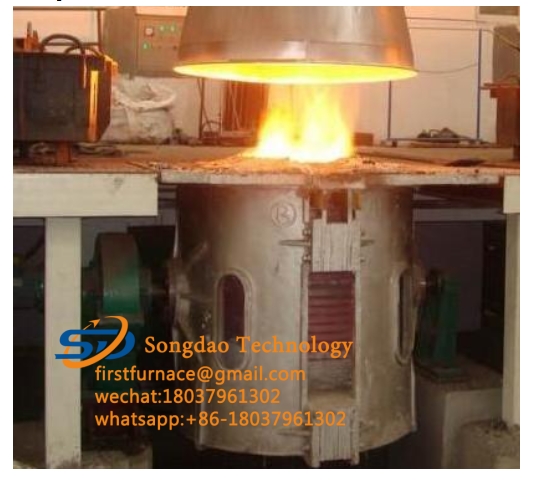- 12
- Jul
Safe use method of crucible leakage alarm device of metal melting furnace
Safe use method of crucible leakage alarm device of ƙarfe mai yin sulɓi
The crucible leakage alarm device of the metal melting furnace is necessary to ensure safe production, prevent the occurrence and expansion of furnace leakage accidents, help judge the use of the furnace lining, and prolong the furnace age. It is necessary to set up a crucible leakage alarm system. Generally, a direct current alarm device is used to install the stainless steel wire bottom electrode (first electrode) in contact with the molten iron and the stainless steel plate (mesh) side electrode (second electrode) between the induction coil of the furnace lining. Connect the electrode leads to the alarm device. When the molten metal leaks to the side electrode, the current rises to the set value, and the alarm device is activated. During the installation of the alarm device, it is necessary to check whether the connection between the lead wire and the electrode is good; whether the lead wire is grounded (resistance to ground> 5kC). During operation, sometimes the stainless steel wire melts at the bottom of the furnace. You can insert a conductive rod into the molten iron and use a multimeter to measure it. If the stainless steel wire is disconnected in the furnace lining, the alarm system will fail and it can only be laid when the furnace is rebuilt next time. After the alarm occurs, check whether it is a false alarm (false alarms mainly include: induced potential interference, lead wire grounding, and furnace lining wet). If the false alarm is eliminated, the furnace lining can be determined to be damaged.
The new lining of the metal melting furnace is in the early stage of melting of the lining oven. Due to the adsorption of water and the precipitation of boric acid crystal water on the surface of the lining, the resistance of the lining decreases, and the reading of the alarm ammeter rises. When it is high, the alarm value can be reached, but the current generally rises gradually at this time. After a few furnaces are melted, it will gradually decrease and return to the normal range, which can be distinguished from the general leakage alarm current. Sometimes the alarm current, which has been on a downward trend during the drying period, has started to rise again. At this time, the furnace was inspected and it was found that due to careless operation, the added iron material scaffolding caused the lower molten iron melting temperature to rise sharply and exceed the sintering temperature. (Above 1600°C), the entire furnace lining is sintered with almost only a severely vitrified and hard sintered layer, without a transition layer and loose layer, thus causing a furnace leakage accident. At this time, the furnace leakage alarm during the oven is correct. The 3t intermediate frequency smelting furnace uses another alarm device, one by one grounding leakage detection device. The device includes a grounding detection module connected to the power supply and a grounding leakage probe located in the furnace. If the alloy liquid contacts the coil, the grounding leakage probe will lead the coil current to the ground, and the grounding probe module will detect it and cut it off. Power supply to stop the arc breakdown of the coil and prevent the alloy liquid from carrying high voltage. The hand-held ground leakage probe test device can be used to frequently and regularly check whether the ground leakage probe system of the furnace is intact and reliable to ensure that the ground leakage probe is completely grounded, so that the safety of the operator and the furnace is guaranteed.

